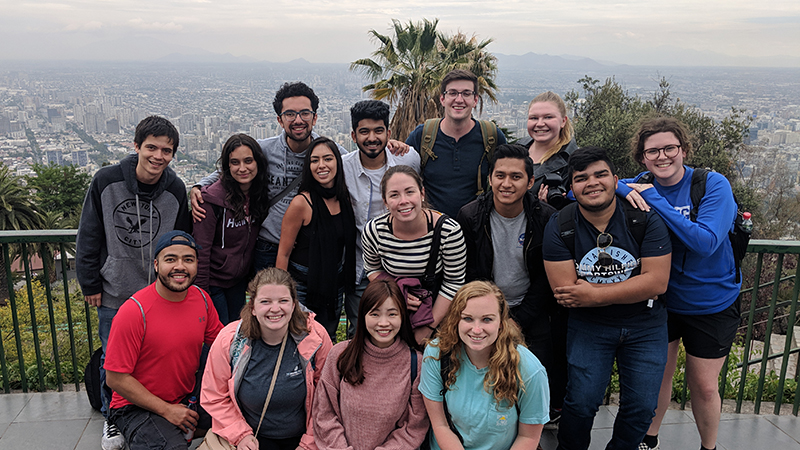
As Venezuelans began gathering in the streets of Caracas to demand liberty, 45 TFAS students from more than 20 countries came together in Latin America to study the foundations of a free society and the power of ideas.
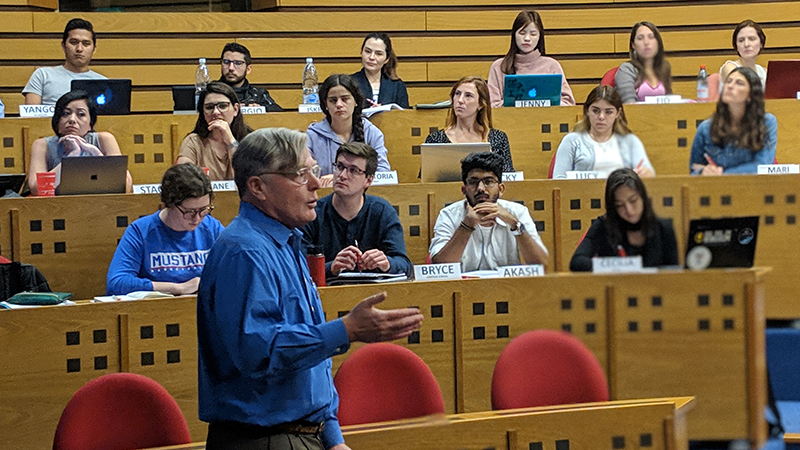
The 11th annual TFAS Institute on Leadership in the Americas (ILA) took place from Jan. 5-19 in Santiago, Chile. After two weeks of lessons in economics, Latin American history and political philosophy, the young leaders walked away with lifelong friendships and an overwhelming desire to make the world a better place.
Sergio Leal Santibañez ’19, a recent graduate of Meritorious Autonomous University of Puebla (BUAP) in Mexico said the experience left a mark on him and changed the way he sees the world.
“The professor’s perspective, the diversity of my classmates and their different points of view have opened my mind on understanding the present global context,” Leal Santibañez said. “It has motivated me to apply this knowledge in my country in order to address the problems it faces.”
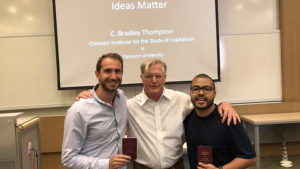
Leading the program’s academics was admired TFAS professor Dr. C. Bradley Thompson of the Clemson Institute for the Study of Capitalism, who returned to the program with his popular course, “Political Philosophy of the American Founding.” In a series of eight lectures, Thompson discussed the power of ideas, the moral foundations of a free society and the proper role of government.
Later in the program, students delved deeper into the consequences of ideas by examining real world regional examples with think tank professionals and esteemed instructors from the Universidad de los Andes (UANDES), TFAS’s program host and partner in Santiago. Through the course, students explored current and historical events – from the remarkable economic progress of Chile to the rapid decline of rule of law and the rise of poverty in Venezuela – to analyze these contrasting societies and explore how ideas impact innovation, higher education, economics and finance.
The coursework led me to reevaluate the impact that competing philosophical thought has on our world, reflected in the varying perspectives of students here. Ideas matter because they have consequences, either for the betterment or worsening of the human condition.” – Bryce Leech, Embry-Riddle Aeronautical University
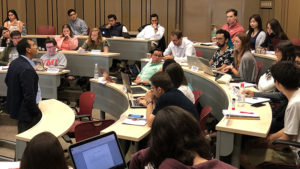
Course instructors included UANDES President José Antonio Guzman; UANDES Vice Dean of Research & Post Graduate Studies and School of Law Professor Luis Alejandro Silva; UANDES Vice President of University Relations Matías Vial; Dean of the School of Communication at UANDES Juan Ignacio Brito; UANDES Vice Dean & School of Business and Economics Professor Francisco Ulloa; Finance Master Director and School of Business and Economics Professor at UANDES Carlos Budnevich; UANDES School of Communication Professor Ricardo Leiva; and Ricardo Gonzalez, public opinion coordinator at Centro de Estudios Públicos (CEP), a free-market think tank in Chile.
Outside of the TFAS classroom, students were treated to an intimate view of Chile with tours of San Cristobal Hill, La Moneda Palace, The National Congress of Chile, and a typical Chilean lunch hosted by UANDES, complete with traditional Chilean games, food and dance.
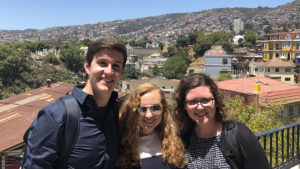
Colombian student María José Bernal Gaviria ’19 said the program introduced her to new cultures, lifelong friends and encouraged her to discuss and analyze topics in a new way.
“This program has been challenging enough to make me question crucial principles, enriching enough to bring me new tools to face reality and exciting enough to make new friends and learn from their cultures,” Bernal Gaviria said.
To continue learning from one another, the students also engaged in the TFAS Cultural Presentations, a gathering held at each TFAS International program, to showcase the cultural identities of each of their home cultures through dances, songs, trivia, symbols, history and more.
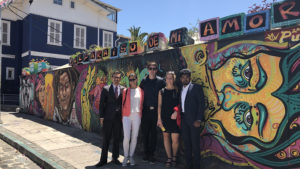
Amelia Saavedra Nale ’19 of Argentina said that the cultural events and social interaction have laid the foundation for lifelong friendships and understanding among the young leaders.
“The people you meet, the experiences you share with them, the places you visit, the conversations about your reality and theirs, the lifelong connections you create with your fellow students is what makes it all special,” Saavedra Nale said.
Fabio Valentini ’19 – a Venezuelan student who’s “committed to fight for freedom” in his country – summed up the TFAS program as a unique encounter that exposed him to a new community of peer leaders and new experiences, but most importantly, it opened his eyes to new ideas that he wouldn’t have access to from a university or other local programs.
We live in a world where the ideas of freedom are still questioned or censored, [TFAS] allows us to overcome these obstacles and move towards a free society in which all individuals are equal to the law and with the same level of opportunities.” – Fabio Valentini, Vente Venezuela
To learn more about the TFAS Santiago program, please visit our programs page and watch an alumni testimonial below.

